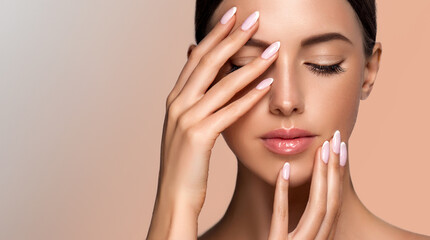If you’re looking for skin care tips to treat acne, here are some recommendations that may help improve your condition:
- Keep your face clean: Gently cleanse your face twice a day using a mild, non-comedogenic cleanser. Avoid harsh soaps or scrubbing vigorously, as they can irritate the skin and make acne worse.
- Avoid touching your face: Touching your face can transfer bacteria and oil from your hands to your skin, leading to breakouts. Try to minimize touching your face throughout the day.
- Use non-comedogenic products: Look for skin care products, including moisturizers, sunscreens, and makeup, labeled as non-comedogenic or oil-free. These products are less likely to clog pores and contribute to acne.
- Moisturize regularly: Even if you have oily skin, it’s important to keep your skin hydrated. Choose a lightweight, oil-free moisturizer to prevent your skin from overproducing oil in response to dryness.
- Avoid heavy makeup: If you wear makeup, choose products labeled as non-comedogenic, oil-free, or mineral-based. These are less likely to clog your pores. Also, make sure to remove your makeup before going to bed.
- Be gentle with your skin: Avoid scrubbing your face vigorously or using harsh exfoliants, as these can irritate the skin and worsen acne. Opt for gentle exfoliation with products containing salicylic acid or use a soft washcloth to cleanse your face.
- Don’t squeeze or pick at acne lesions: Picking at acne can lead to scarring and spread bacteria, making the condition worse. If needed, consult a dermatologist to have acne lesions professionally extracted.
- Protect your skin from the sun: Excessive sun exposure can lead to skin damage and inflammation, making acne worse. Use a broad-spectrum sunscreen with an SPF of 30 or higher, and wear protective clothing when spending time outdoors.
- Be cautious with hair products: Some hair products, such as gels, pomades, and oils, can clog pores along the hairline and contribute to acne breakouts. Keep these products away from your face or opt for hair products labeled as non-comedogenic.
- Maintain a healthy lifestyle: A balanced diet, regular exercise, stress management, and adequate sleep can all contribute to healthier skin. While they may not directly treat acne, these lifestyle factors can have a positive impact on your overall skin health.
Remember, everyone’s skin is unique, and what works for one person may not work for another. If your acne is severe or persistent, it’s best to consult a dermatologist for personalized advice and treatment options.
